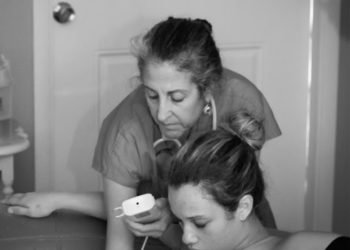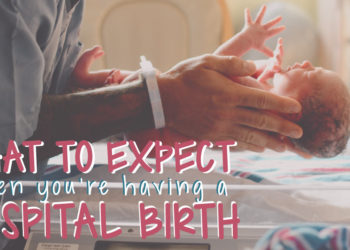Pregnancy is a journey filled with excitement, anticipation, and, at times, a few unexpected bumps along the way. One of the more common concerns during pregnancy is maintaining a healthy blood pressure. While it’s completely normal for your body to go through changes, keeping an eye on your blood pressure is crucial for both your health and your baby’s well-being.
Understanding how blood pressure works during pregnancy can help you feel more confident and prepared, so let’s break it down in a way that’s easy to follow.
The Significance of Blood Pressure During Pregnancy
Your blood pressure measures how strongly your blood moves through your arteries. During pregnancy, your body naturally adjusts to accommodate your baby’s needs. Sometimes, this can lead to changes in your normal readings, and in some cases, it may rise higher than usual. There are a few different types of blood pressure conditions that can happen during pregnancy:
- Gestational Hypertension – This develops after 20 weeks of pregnancy and usually goes away after delivery. Most of the time, it’s nothing to worry about, but your provider will keep an eye on it since it can sometimes lead to preeclampsia.
- Chronic Hypertension – This is high blood pressure that was present before pregnancy or develops before 20 weeks.
- Preeclampsia – A condition that involves high blood pressure and signs of stress on organs like the liver or kidneys. It’s something doctors monitor closely to keep you and your baby safe.
Signs of High Blood Pressure During Pregnancy
Many women don’t notice symptoms of higher than normal blood pressure at first, which is why regular prenatal visits are so important. However, here some common signs of to be aware of are:
- Headaches that don’t go away
- Blurred vision or seeing spots
- Sudden swelling in the face, hands, or feet
- Shortness of breath
- Nausea or vomiting later in pregnancy
- Chest pain or a feeling of tightness
If you experience any of these symptoms, let your healthcare provider know immediately. They can check your blood pressure and monitor for any signs of preeclampsia symptoms.
What Is Preeclampsia?
Preeclampsia can develop after the 20th week of pregnancy, and healthcare providers take it seriously because of the added strain it can put on both you and your baby. Some preeclampsia symptoms include:
- Persistent headaches
- Swelling that doesn’t go away
- High levels of protein in the urine (your doctor will check for this)
- Sudden weight gain that seems unrelated to normal pregnancy changes
- Decreased urine output
- Pain in the upper right side of the abdomen
Left untreated, preeclampsia can lead to complications such as seizures, preterm birth, or issues with the placenta. That’s why it’s so important to monitor and manage your blood pressure throughout pregnancy.
How to Keep Your Pressure in Check
There are plenty of ways to manage your health when pregnant and support a healthy pregnancy. Here are some simple, everyday tips:
- Stay Active – Gentle movement, like walking or prenatal yoga, can help maintain stable rates.
- Eat a Balanced Diet – Whole foods, lean proteins, fresh fruits, and leafy greens are your best friends. Try to cut back on excess salt and processed foods.
- Stay Hydrated – Drinking enough water helps with circulation and can reduce swelling.
- Get Enough Rest – Your body is working overtime growing a baby, so give yourself plenty of time to rest and relax.
- Monitor Your Blood Pressure – If your provider recommends it, checking your pressure at home can help you stay on top of any changes.
- Keep Up with Prenatal Appointments – Your doctor or midwife will monitor you and make sure everything stays within a healthy range.
When to Call Your Healthcare Provider
Pregnancy is an exciting time, but it’s also important to tune in to what your body is telling you. If you notice sudden swelling, headaches, vision changes, or other unusual symptoms, it’s always best to check in with your provider. They’re there to support you and make sure everything is progressing smoothly.
Education is empowerment. Managing your blood pressure when pregnant is easy with the right support and care.
Lean on your healthcare team, trust your instincts, and know that your body is capable of incredible things. Your journey to motherhood is unique and beautiful, and there are people ready to support you every step of the way.

















